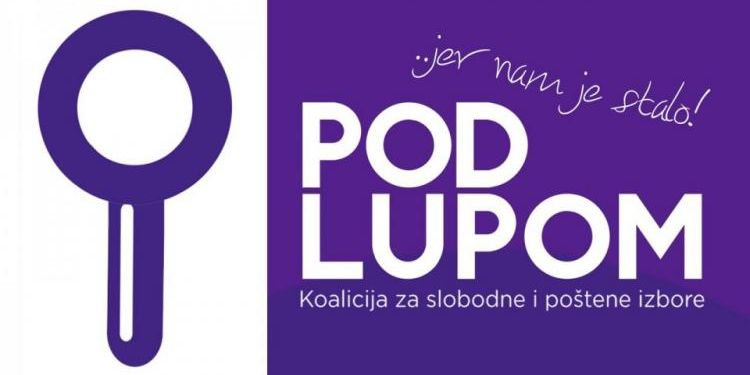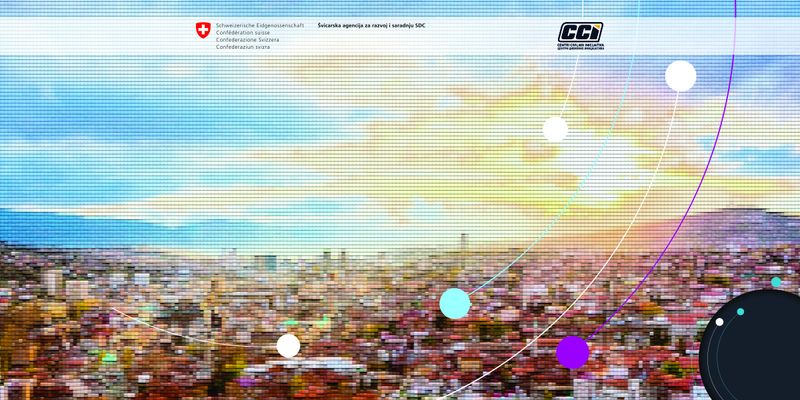12.05.2021
WITHOUT PUBLIC HEARINGS, THERE IS NO CONTROL OF PUBLIC FUNDS SPENDING
"Without organising public hearings of audited institutions, there is no complete control over the spending of public funds," it was pointed out today in Banja Luka at the press conference of the Centres for Civic Initiatives (CCI), which presented the Analysis of the Public Audit Process in Republika Srpska for the period 2016-2019.
Namely, after the publication of audit reports, the obligation of the institutions is to implement the audit recommendations, which is largely missing. Also, the obligation of the Audit Committee of the National Assembly of Republika Srpska is to organize public hearings of the audited institutions - which does not happen in practice. Through the Analysis, the CCI warns that the approach to the public audit process in Republika Srpska should be made more accountable by the audited institutions and the RSNA Audit Committee.
For the period from 2016 to 2019, as of December 2020, the Main Audit Office published 267 reports on the financial audit of institutions in Republika Srpska, most of which are budget users (127 of them). For the financial reports in the period from 2016 to 2019, 106 positive, 145 qualified opinions and 16 negative opinions were given.
It is worrying that 51% are qualified opinions, and an additional 7% are negative opinions, meaning that a significant number of audited entities still do not comply with laws and other regulations and that their financial discipline is still insufficient. What would help prevent further recurrence of similar or same omissions are public hearings that should allow for the participation of the public, the media and civil society organizations. However, such public hearings are absent, which means, at least, non-fulfilment of the legally specified role of the Audit Committee of the National Assembly of Republika Srpska, and ultimately leads to a lack of control over the spending of public funds.
Unfortunately, the last public hearing of audited institutions with public involvement was organized 10 years ago - which indisputably indicates that the role of the RSNA Audit Committee in controlling the spending of public funds is not sufficiently used, which further opens space for irresponsible spending of Republika Srpska citizens' funds and possible corruption. Given that the Main Audit Office submitted all final audited reports, it is clear that the Audit Committee did not act on all reports as required by the Rules of Procedure, Committee Guidelines and the Audit Act. An obvious example is the negative audit report for APIF, which was not discussed in the National Assembly, before the deputies.
In addition, the fact that the Main Audit Office sent as many as 2172 recommendations to the audited institutions for the period 2016-2019 is worrying.
However, out of 1672 recommendations for the period 2016-2018, only 23% of the recommendations have been implemented by the end of 2020. This indicates that there are no clearly prescribed sanctions for non-compliance with the recommendations, which some audited institutions obviously use and do not act on the provided recommendations. In this context, it is important to point out that the success of the audit does not depend only on the work of the Audit Office, but is a key obligation of other institutions, such as prosecutors, parliament, political actors and, ultimately, the court.
On that occasion, the Centres for Civic Initiatives call for the improvement of the public audit process in Republika Srpska. A step towards more successful control of public spending will certainly be the decision of the Audit Committee to organize public hearings in the presence of the media and the interested public, as well as the final activities of parliaments, prosecutors, political parties and courts to use the public audit process and work for the benefit of all citizens.
Project “More Efficient Public Audit for Less Corruption in Bosnia and Herzegovina” is implemented by the Centres for Civic Initiatives (CCI) financed by Sweden, The Project aims to contribute to a more responsible spending of budget funds and reduction of corruption in public institutions in BiH.
Ana Lučić
Koordinator za odnose s medijima
![]() ana at ccibh dot org
ana at ccibh dot org
![]() 055 222 111
055 222 111
![]() Karađorđeva 8, Bijeljina
Karađorđeva 8, Bijeljina



















